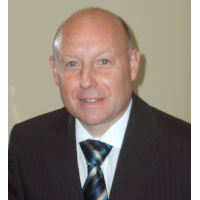
DAs are usually fiercely independent; they do not want to be tied to a network and prefer to have their autonomy, even though that means spending some of their time directly on systems, controls and compliance work.
There is a perception in some quarters that DAs are larger firms, with a back up and infrastructure, but many DAs are one-man bands who can struggle balancing administration, sales and compliance with the needs of their customers.
It is true that there are a number of bigger DA firms in this space too. They are usually in a better place than the smaller firms, because they tend to have more resources and, if they are large enough, even direct help from lenders and product providers.
Although mortgage clubs add value to firms of all sizes, they can be invaluable for the smaller DA firm who often needs help from a good support organisation.
Compare the role of the DA to that of appointed representatives (ARs) who are part of a network. ARs have similar issues but, because they have a network’s guidance including meetings, seminars and often BDM or sales support, they are usually more cushioned from the slew of regulatory and market changes that beset our industry.
However, this comes at a cost, as advisers not only have to pay for this service but give up the autonomy and freedom to do as they please.
They may have less choice over where to place mortgage or protection business, as networks will usually have panels of lenders and providers that their members must place their business with.
The role of a mortgage club can fill the gap between being completely alone and the restrictions that can be posed by being part of a network, enabling DAs to remain independent while receiving a degree of support and the benefits that advisers in a network can take advantage of.
The most commonly known benefits are access to exclusive mortgage and protection products and enhanced procuration fees.
A lone mortgage adviser of course has little buying power when it comes to negotiating mortgage rates and proc fees, but with the combined buying power of several thousand advisers, a club can negotiate deals on their behalf.
What is less known is the additional, and arguably more valuable, support that many mortgage clubs provide to their members, such as training, help with lead generation, technology solutions and, most importantly, compliance support or compliance checking services.
Regulation and compliance can be the biggest hurdle for many DAs who are not of a size to have their own compliance team and it is often this factor, more than any other, which will make many advisers question whether they can make it while being directly authorised.
There is no doubt that regulation is a challenge for all small businesses, and those that remain alone, without internal support, or help and advice, either from a network or a mortgage club, are likely to struggle in the future as regulation gets tougher.
However, the resources are there for advisers to take advantage of.
When choosing a club to put their business through, it is the sensible broker who looks at what else a club provides.
Before choosing any club or network it is essential that you first carry out full due diligence on the organisation you are looking to align yourself with to ensure the club or network understands your aims, wishes and needs and can meet them.
Look at any joining fees or contracts in detail, examine the get out clauses in case things don’t work out as you would like them to and make sure you are not signing up to exclusivity or committing to put a certain percentage of your business the club’s way.
Any adviser deciding to embrace the independence of being directly authorised, should also look at the benefits that different clubs can offer them, and flag up regularly when they need more support in different areas, as the more clubs become aware of the needs of their members the more they will provide the services and support that are required.
As the number of regulatory changes and consultations mount up with regulation from the FSA and impending European legislation, it can become almost a full-time job just reading regulatory documents and making sure you’re compliant.
Yet, there is support out there from organisations whose role it is to make sure that advisers have what they need to prosper and grow – so there is no need to feel alone.
Phil Whitehouse is head of mortgage club, The Mortgage Alliance (TMA)















